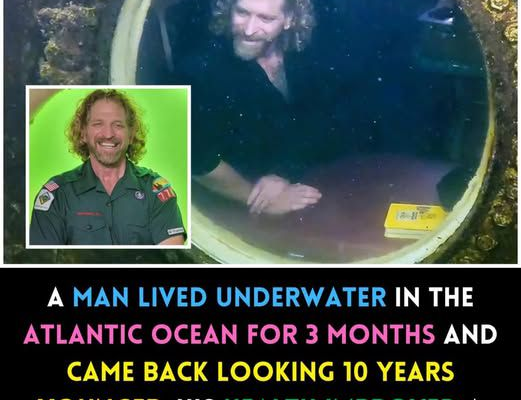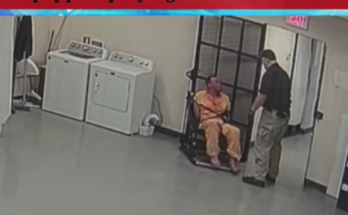In an extraordinary blend of science, endurance, and personal curiosity, Dr. Joseph Dituri—a retired U.S. Navy officer turned biomedical engineer—embarked on a groundbreaking journey beneath the surface of the sea. For 93 consecutive days, he lived in Jules’ Undersea Lodge, located 30 feet underwater in Key Largo, Florida. His mission wasn’t just to break records—it was to explore how hyperbaric pressure might affect the human body, and what he discovered may change how we think about aging.

Known as Project Neptune 100, this underwater living experiment was originally intended to promote marine research and human health innovation. But what surprised everyone—including Dituri himself—were the unexpected biological changes he experienced. After surfacing from his nearly 3-month underwater stay, medical tests revealed something remarkable: his telomeres had lengthened by 20%.
Telomeres are protective caps at the ends of chromosomes that naturally shorten with age. Their degradation is associated with cellular aging and disease. In most cases, longer telomeres indicate cellular rejuvenation. The fact that Dituri’s lengthened significantly stunned scientists. Even more surprising, his number of stem cells—vital for tissue repair and regeneration—also increased.
His cholesterol levels dropped by 72 points, inflammation markers decreased, and he reported deeper, more restful sleep than before. Combined, these outcomes hint at powerful, wide-ranging benefits of living in a pressurized, oxygen-rich environment—much like what is used in hyperbaric oxygen therapy, already approved for wound healing, carbon monoxide poisoning, and certain infections.
Dr. Dituri’s underwater habitat maintained a pressure 1.6 times higher than sea level, which may have helped trigger the observed physiological effects. This increase in pressure—and exposure to higher oxygen levels—might explain the anti-inflammatory effects and telomere extension. Although researchers caution that more studies are needed, this case offers compelling early evidence that the environment we live in might influence how we age.
But this was not just a scientific venture—it was also deeply personal. After serving in the Navy for nearly three decades and later teaching biomedical engineering, Dituri has long been fascinated by the limits of human endurance. For him, Project Neptune wasn’t about isolation or ego—it was about hope. “If we can find a way to regenerate cells, fight aging, or improve brain health through pressurized environments, it could transform medicine,” he said in an interview after resurfacing.
Despite living in tight quarters with limited natural light and no physical human interaction for months, Dr. Dituri maintained his mental health through a structured routine, regular Zoom calls, and underwater exercise. His story is a testament to both the resilience of the human spirit and the untapped potential of scientific exploration.
Now back on land, Dr. Dituri continues to work with researchers to analyze his results, hoping to publish peer-reviewed findings that could one day impact aging therapies, space travel health protocols, and deep-sea medicine.
His underwater odyssey may not only have rewritten record books—but also opened a door to a new frontier in longevity science.



